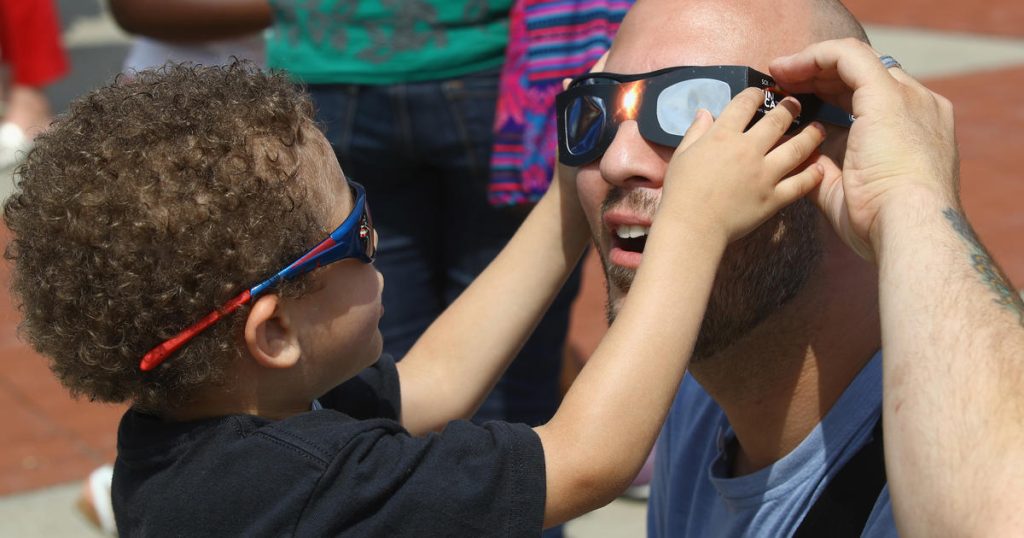The solar eclipse occurring on April 8, 2024, will be visible to millions of Americans, sparking excitement among many to witness this rare event. This celestial phenomenon happens when the moon passes between the sun and Earth, blocking the sun’s light. If the moon only partially covers the sun, it’s a partial solar eclipse, but if it completely blocks the sun, it’s a total solar eclipse. Dr. Jason P. Brinton, an ophthalmologist, emphasizes the importance of watching the eclipse safely, as looking at the sun during an eclipse can cause eye damage. Therefore, proper eye protection is necessary for viewing.
Looking directly at the sun, even during an eclipse, can be harmful to the eyes due to the exposure to solar ultraviolet rays and infrared radiation. Dr. Yehia Hashad, a retinal specialist, explains that even a small dose of solar radiation can cause harm, making it crucial to protect the eyes during both partial and total eclipses. While some believe it’s safe to view the sun during the brief period of totality without eye protection, experts advise against it due to the potential risk of eye damage. Even a few seconds of viewing the sun during an eclipse can have long-lasting effects on vision.
Special eclipse glasses are necessary for safely viewing a solar eclipse. Regular sunglasses do not provide sufficient protection, and stacking multiple pairs of sunglasses is also ineffective. It is essential to use eclipse glasses that comply with the ISO 12312-2 international safety standard, as indicated by the “ISO” label on the glasses. Additionally, using cameras, binoculars, or telescopes to view the eclipse, even with eclipse glasses on, is not recommended as the solar rays can still cause eye injury. In the case of unavailability of eclipse glasses, homemade viewers can provide an indirect way to observe the eclipse.
Parents and educators should take precautions to ensure the safety of children during the solar eclipse, especially as it may coincide with school dismissal times. School districts are canceling classes early to allow families to enjoy the event safely while wearing proper eclipse glasses. Dr. Avnish Deobhakta stresses the importance of supervising children and ensuring they wear the right protective eyewear. It is advised to avoid direct viewing of the eclipse and opt for professional photos or videos instead. If one looks directly at the eclipse without protection, symptoms of eye damage may include headaches, blurred vision, dark spots, and changes in color perception.
While the damage from looking at an eclipse may not be immediately apparent, it could lead to permanent vision impairment. Dr. Brinton cautions that even a fraction of a second of exposure can cause harm, with conditions like solar retinopathy emerging as a result. Patients experiencing these symptoms should consult an eye care professional for diagnosis and monitoring. Unfortunately, there is no specific treatment for solar retinopathy, and the body may need time to heal the damage caused by direct sun exposure. It is crucial to prioritize eye safety and follow guidelines for viewing solar eclipses to prevent long-term complications.


